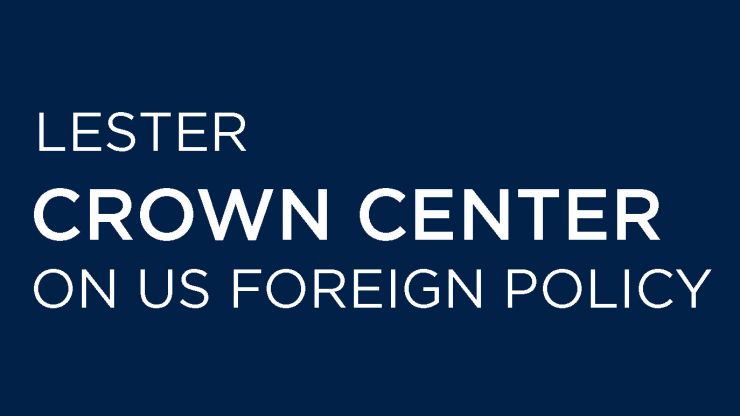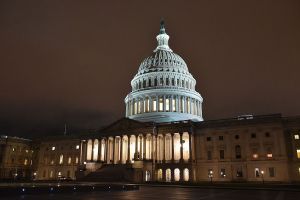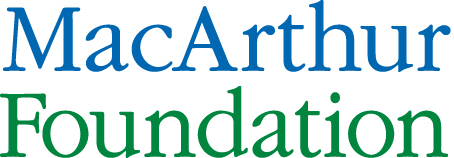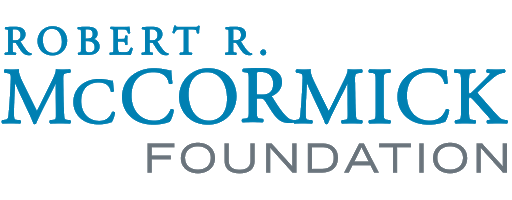The 2017 Chicago Council Survey, conducted roughly six months into the Trump administration, tested the appeal of "America First" ideas among the United States' public.
What Americans Think about America First
Executive Summary
President Trump's inaugural address, like his campaign, signaled a major departure from the past seven decades of American foreign policy and engagement with the rest of the world. While never fully parsed, the slogans "Make America Great Again," "America First," and "Americanism, not Globalism," along with the president's speeches and tweets, prescribed greater protectionism in trade, a new financial reckoning with our security allies, and a withdrawal from major international agreements.
The 2017 Chicago Council Survey, conducted roughly six months into the Trump administration, tested the appeal of these ideas among the American public. The results suggest their attraction remains limited. For now, public criticism of trade deals, support for withholding US security guarantees from allies, and calls for restricting immigration mainly appeal to a core group of Trump supporters (defined in this report as those Americans with a very favorable view of President Trump). Yet, aside from the president's core supporters, most Americans prefer the type of foreign policy that has been typical of US administrations, be they Republican or Democrat, since World War II.
Majorities continue to endorse sustaining American engagement abroad as well as maintaining alliances, supporting trade, and participating in international agreements. Indeed, in key instances, Americans have doubled down on these beliefs. Public support has risen to new highs when it comes to willingness to defend allies, the perceived benefits of trade, and a desire to grant undocumented workers a path to citizenship.
Americans Value Allies and Are More Willing Than Ever to Defend Them
During the 2016 campaign and into his presidency, Donald Trump has repeatedly criticized allies of freeriding on America's security guarantee and argued that US alliances were not serving American interests. But the US public disagrees. Americans have repeatedly rated alliances as one of the most effective ways for the United States to achieve its foreign policy goals since the question was first asked in 2014. Today, the US public is more convinced than ever of their importance. Americans rate maintaining existing alliances as the most effective foreign policy tool, with 49 percent responding "very effective", followed by maintaining US military superiority (47%) and building new alliances with other countries (36%).
Americans also express confidence in Asian and European allies to deal responsibly with world problems, and solid majorities favor maintaining or increasing the US military presence in the Asia-Pacific (78%), Europe (73%), and the Middle East (70%). A slightly larger majority now (69%) compared with a year ago (65%) say NATO is essential to US security. And for the first time, majorities of Americans are willing to use US troops to defend South Korea if it is invaded by North Korea (62%) or if NATO allies like Latvia, Lithuania, or Estonia are invaded by Russia (52%).
The most specific wish that President Trump has for NATO is for allied countries to contribute more to collective defense; he and other administration officials have advocated for withholding US commitment to defend allies until they have paid more. But a majority of Americans think that NATO allies should be convinced to do their part through persuasion and diplomatic channels (59%) rather than threatening to withhold the US security guarantee to NATO allies to get them to pay more for defense (38%).
Given these views, it is clear that Americans appreciate the advantages that alliances bring. Majorities say that alliances with Europe and East Asia (60% each) are either mutually beneficial or mostly benefit the United States, and 48 percent say the same about alliances in the Middle East.
Core Trump supporters are the most skeptical of the benefits regarding alliances for the United States. Perhaps taking their lead from the president, a majority favor withholding US security guarantee from NATO allies until they pay more (60%); 51 percent of overall Republicans agree. But even core Trump supporters do not seem to believe the alliance is "obsolete," given that a majority (54%) think NATO is still essential to US security.
A Record Percentage of Americans Recognize Benefits of Trade
Americans are feeling more optimistic about the positive impact of trade. Compared with a year ago, record numbers of Americans now say that international trade is good for US consumers (78%), for the US economy (72%), and for job creation (57%). Additionally, the perceived benefits of trade are up across all party affiliations.
A majority of Americans believe that trade deals between the United States and other countries benefit both countries (50%) or mostly benefit the United States (7%). But a substantial percentage of Americans— including a majority of core Trump supporters and a plurality of Republicans overall—think other countries mostly benefit (34%) or neither country benefits (6%).
President Trump has blamed poor trade deals for the loss of American jobs, and on this point, Americans agree. A majority say that manufacturing job losses are due to outsourcing (56%) rather than increased automation (42%). Yet, more Americans say that the current administration's policies will harm (41%) rather than help (32%) US workers, and 24 percent say they will make no difference.
There are clear partisan divides on expectations for the new administration. Solid majorities of core Trump supporters (82%) and Republicans (64%) expect this administration's policies will do more to protect US workers, which may help explain why they are more optimistic about the overall benefits of international trade to the US economy, consumers, and job creation. For their part, Democrats may feel the need to underscore their support for international trade as a reaction against the trade-bashing rhetoric from both Republican and Democratic candidates in 2016.
Concern over Immigration at Lowest Point Yet
Immigration was a central issue during the 2016 presidential campaign, and it remains a key pillar in Donald Trump's America First platform. But the American public is less alarmed than last year by the potential threat of large numbers of immigrants and refugees entering the United States. Just 37 percent of Americans characterize immigration as a critical threat, down from 43 percent in 2016, marking a new low in concern for this issue. There are, however, still large differences between Democrats (20%) and Republicans (61%), with core Trump supporters the most likely of all to consider immigration a critical threat (80%).
As the overall perceived threat from immigration has gone down, support for providing an opportunity for illegal workers in the United States to become citizens has gone up. Among all Americans, two-thirds (65%) support providing illegal immigrants a path to citizenship either immediately or with a waiting period and a financial penalty—an increase of 7 percentage points since last year. Conversely, fewer Americans now say that illegal immigrants should be required to leave their jobs and the United States (22%, down from 28% in 2016).
A clear majority of Democrats (77%, up from 71% in 2016) favor a pathway to citizenship either immediately or with conditions. A smaller majority of Republicans now also favor the same solution as Democrats (52%, up from 44%), although 36 percent of Republicans favor deportation (down from 42% in 2016). Even core Trump supporters are divided in their views, with equal numbers supporting deportation (45%) and a path to citizenship (45%) for illegal immigrants.
Majority Continue to Support Paris Agreement
Conducted just weeks after President Trump kept his campaign promise to withdraw from the Paris Agreement on climate change, the 2017 Chicago Council Survey reveals that 6 in 10 Americans (62%) continue to favor US participation in the agreement. However, overall public support of the Paris Agreement has declined since 2016 (when 71% favored participation) largely because of a 20-point drop in Republican support (37%, down from 57% in 2016), perhaps following the president's lead on this issue. Just 24 percent of core Trump supporters want the United States to participate in the agreement. In contrast, majorities of Democrats (83%) and Independents (60%) continue to support the Paris Accord, though also at slightly lower levels than in 2016 (when it was backed by 87% of Democrats and 68% of Independents).
Overall, 46 percent of Americans say that climate change is now a critical threat facing the United States; while still not a majority, this view reflects the highest point of concern recorded by the Chicago Council Survey. Yet, Republicans and Democrats markedly disagree on the gravity of this issue. Seven in 10 Democrats think that climate change is a critical threat, compared with just 16 percent of Republicans and 12 percent of core Trump supporters.
Fractures within the Republican Party Base
Headlines over the past year have proclaimed an internal battle within the Republican Party between President Trump's supporters and those who oppose his policies. The 2017 Chicago Council Survey data illustrate these fissures between self-described Republicans who have a very favorable view of President Trump ("Trump Republicans") and those who do not ("non-Trump Republicans").
Non-Trump Republicans align more with average US public opinion than they do with Trump Republicans. Non-Trump Republicans are closer to the overall public than to Trump Republicans in their views on NAFTA (53% overall public, 49% non-Trump Republicans, 20% Trump Republicans believe the agreement is good for the US economy). Non-Trump Republicans are also closer to the overall public when asked the best way to get US allies to pay more for their defense (61% Trump Republicans, 40% non-Trump Republicans, and 38% overall favor withholding the US security guarantee). And on immigration, the overall public (65%) and non-Trump Republicans (62%) are more aligned in supporting a path to citizenship for illegal immigrants than Trump Republicans (43%). Specific examples of other differences among Republicans are included in each chapter of this report (see the sidebars on pages 16, 23, and 29).
Conclusion
Despite the politically charged environment over the past year, Americans express remarkably enduring support for an active US role in world affairs, for security alliances, and for trade relationships. They also favor offering illegal immigrants an opportunity to earn citizenship, either immediately or with conditions—a fact often overlooked by political leaders. Even though a portion of Americans have some questions about how much the United States gets out of security alliances and trade agreements, the American public as a whole seems to recognize clear value in maintaining them.
President Trump appears to have noticed, and he has begun to adjust some of his campaign positions since moving into the Oval Office. He has declared that NATO is no longer obsolete and has taken some steps to reassure allies that the United States will honor its defense commitments. Officials in Trump's administration, including the vice president and the secretaries of state and defense, hold more mainstream views on defense issues, and they have repeatedly traveled to allied nations to smooth ruffled feathers. President Trump has also moderated some of his anti-trade rhetoric, backing away from accusations of Chinese currency manipulation and seeking to renegotiate rather than abandon NAFTA. These moderated positions are closer to mainstream American views; they are also closer to the views of those Republicans who are not core supporters of Donald Trump.













